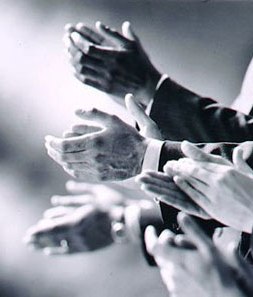 My father was an engineer. I was taught early in life that if something broke, we were to take it apart, break it down into its component parts, analyze it, repair it, put it back together. I became very good at fixing things, and my subsequent training as an accountant and lawyer reinforced my father’s training.
My father was an engineer. I was taught early in life that if something broke, we were to take it apart, break it down into its component parts, analyze it, repair it, put it back together. I became very good at fixing things, and my subsequent training as an accountant and lawyer reinforced my father’s training.
This paradigm works well with the physical world and with systems that primarily deal with things. Yet as time passed and my tasks in life involved people more, I began to have increasing doubts about the efficacy of the “fix it” approach.
I came to believe that achieving “desired results” was in many cases not simply a matter of making the technically correct, absolutely perfect decision. Often the quality of the execution of the decision was as important——if not more important——than the quality of the decision. Achieving desired results can be thought of as the product of the correctness of the decision multiplied by the quality of the execution.
For example, a perfect “10” decision with lackadaisical “4” execution, will yield only a “40” result, e.g. 10 x 4 = 40. However, a “7” decision——one made under conditions of uncertainty, time pressure, many unknowns, and conflicting priorities——but executed with enthusiasm, skill, and verve, a “10” execution, will yield a much improved “70” result, e.g. 7 x 10 = 70.
There are some decisions I call the “Behind Door #3” type, where one must blindly choose among 3 doors/options. The result is instantly known and execution is not a factor. By and large, these are not true decisions. Other than employing a few game-playing strategies, they are just coin flips.
Personal leadership is about people, and execution is all about people. Motivating is complex but at the heart of it is ownership. When people feel involved, when they feel their input is valued and that what they do will make a difference, they generally are their most creative and give their best.
To my consternation, often I found that my “fix it” mentality was sabotaging my best leadership efforts. I would see things that I thought were wrong, that needed correction, and I tended to point them out. Gradually it came to me that unless the things I saw were mission critical or immediate life safety issues, I might be better off moving FAR over toward praise on the encourage vs. correct continuum. Perhaps my efforts to correct could do more to discourage, could be experienced as criticism rather than teaching, which was my goal.
This strong bias toward praise and encouragement presupposes a good training program, the existence of strong guidelines, the prior declaration of a clear path, and mutual understanding of the organization’s expectations, along with regular feedback and mission-oriented brainstorming. This is a lot, I know. But by setting aside a specific time for reviewing successes and learning experiences, it frees you up to be positive the rest of the time and look for opportunities to praise.
If something is not important enough for you to remember and cover during your regularly-scheduled results evaluation time, is it important enough for you to criticize on the spot? And which works better anyway? Praise or criticism? Do you get more flies with honey than with vinegar? I tell my wife all the time that she will get more results by praising my posture when it is good than by pointing it out when it is off, which usually is when I’m tired. Which, in turn, is not when I’m at my best in processing non-positive input no matter how well-intentioned it is! (My wife is a dancer, so she is very aware of how you hold your body.)
I teach what I most need and want to know and do. This post is just one example.
Closing Quotes:
“I praise loudly, I blame softly.” – Catherine the Great
“The trouble with most of us is that we would rather be ruined by praise than saved by criticism.” – Norman Vincent Peale
“Flatter me, and I may not believe you. Criticize me, and I may not like you. Ignore me, and I may not forgive you. Encourage me, and I will not forget you.” – William Arthur Ward (American scholar, author, editor, pastor, and teacher.)


0 Comments